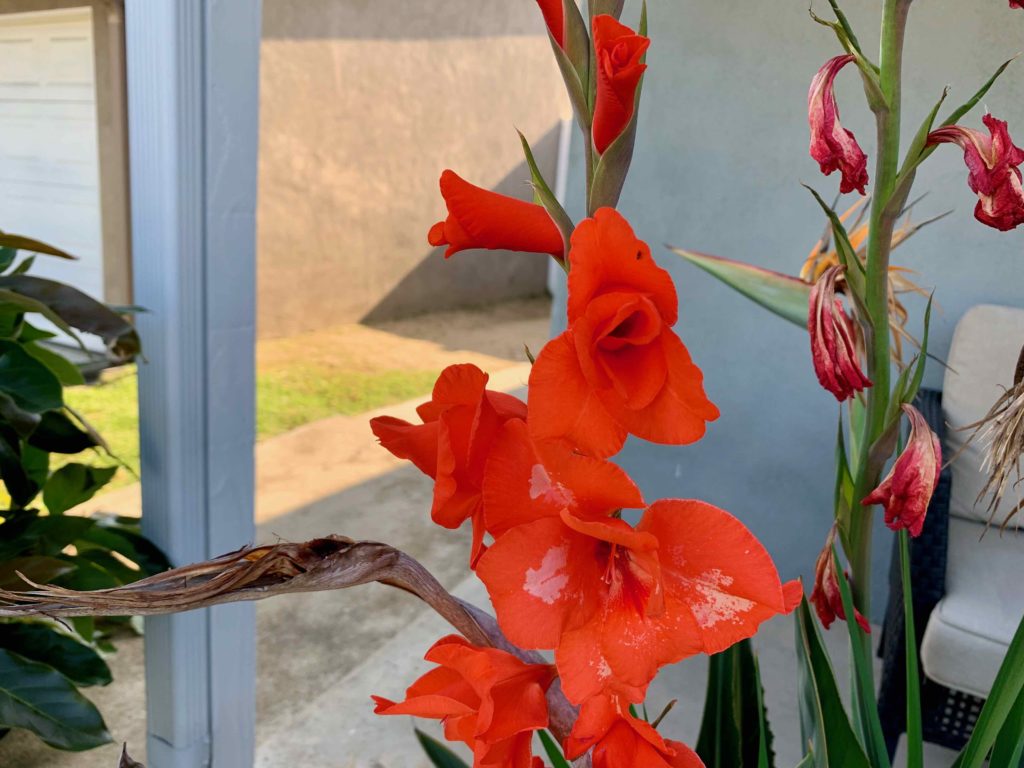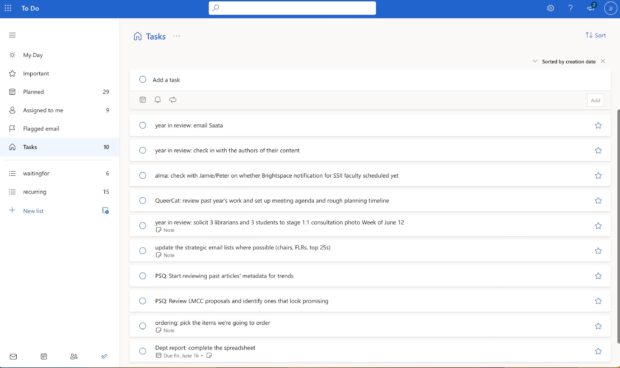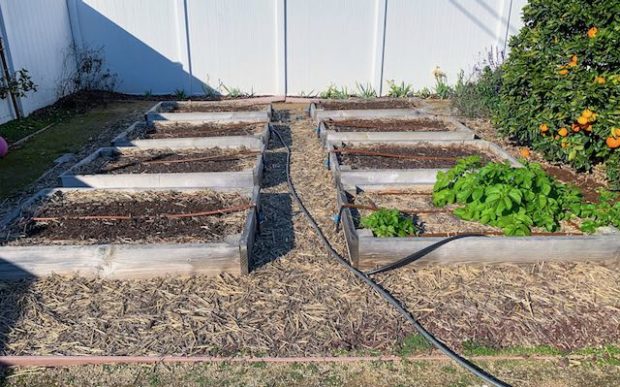“So it must be slow for you at the library in the summer.”
Everyone.
Let’s be clear. It is not slow for me during the summer. It has never been slow for me during the summer. As a department head and as an outreach librarian, the summer is the inflection point between the end of one academic year and the beginning of the next. It is the crest of two waves approaching each other from other sides of the time axis: from the past year moving forward in time is the wave of assessment, reports, and reflection. From the upcoming year moving backwards in time is all the necessary planning, strategizing, and worrying. And here I am in the middle, just letting the waves crash over me.
What I do to wrap up the year
- Write my annual review, detailing my accomplishments in the areas of performance, research, and service
- Pull together a list of all our programs, their costs, and attendance numbers
- Pull and analyze a year’s worth of social media data. Create prez for leadership team.
- Write the reports for any committees I chair (there are always at least two)
- Submit data demonstrating progress my team made on the library’s strategic objectives
- Begin the process of producing and publishing the library’s annual report to stakeholders/donors (finished in November)
- Read and provide feedback on all my direct reports’ annual reviews
- Archive all the things! (old working documents, photos, emails, etc.)
What I do to jump start the year
- Set up all the Box folders and planning documents for next year’s events
- Create a calendar that lists all the event production and communications milestones for all of next year’s events
- Start the graphic design work for our 4 major tent-pole events/projects
- Schedule and run planning meetings for fall’s earliest events
- Estimate the total costs of next year’s events/outreach based on last year’s data
- Try to map out (on my calendar) all my high-priority and/or new projects (so I don’t overcommit myself at any given time)
All of this work takes most of May through June to complete. All the while, there are still ongoing requests for support on other people’s projects, occasional events and tours to manage, and my own research. Summer is, in fact, the busiest time of the year. Granted, there are fewer interruptions, what with folks taking vacations and most of our faculty and students being away; tasks get done faster, making room for… more tasks. I could take it easier— rest on my laurels, slow down, and recuperate— but I would prefer to be busy now so that, come fall, I can switch to autopilot and ride the wave of the semester straight into winter break.
What I’m reading
Success Requires Saying No, Here’s How The Experts Do It by Robert Glazer
“Turning down additional work and obligations allows you to remain focused on your top priorities and the commitments you have already made. If you don’t do this, it’s easy to find yourself wrapped up in other people’s priorities […]”
What Counts as Enough? by Nic Antoinette
“I’m not trying to pretend this is a novel idea. It clearly isn’t. But it’s a little like ordering a Wendy’s Spicy Chicken Sandwich on a roadtrip every five years just to remember it makes me feel like shit.”
The Tyranny of Convenience by Tim Wu
“Customization can be surprisingly homogenizing. Everyone, or nearly everyone, is on Facebook: It is the most convenient way to keep track of your friends and family, who in theory should represent what is unique about you and your life. Yet Facebook seems to make us all the same. Its format and conventions strip us of all but the most superficial expressions of individuality.”
News from the garden

When we bought our house more than a decade ago, we didn’t realize there was a gladiolus bulb sleeping in our front flower bed. Each year, it has dutifully popped up in late Spring. This year however, a second one shot up just as the original one was beginning to fade.
Links to the past
- 10 years ago: On breaking up with libraries. “I’m not willing to be a martyr for my profession if it means compromising what I want out of life […]”
- 10 years ago: Bits and pieces. A snapshot of what library folks were talking about in 2013: the higher ed bubble, building repositories, and the information literacy standards.
- 10 years ago: Shokunin and the power of habit. “While I don’t know that I could ever attain a level of perfection equivalent to the idea of shokunin, through force of habit I can in the least put these same practices to work.”
Overheard online
@LPerenic: How on earth do you know that?
@bookstax: I am a librarian. If I don’t know it, I know where to look. (on Twitter)





